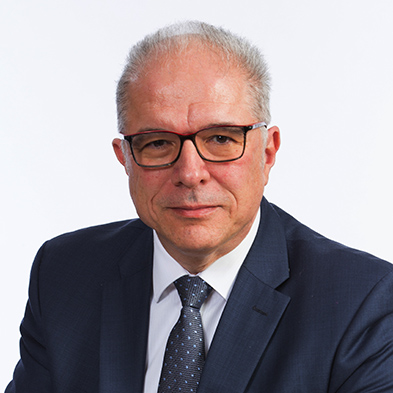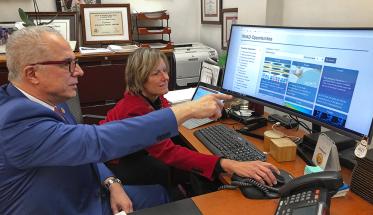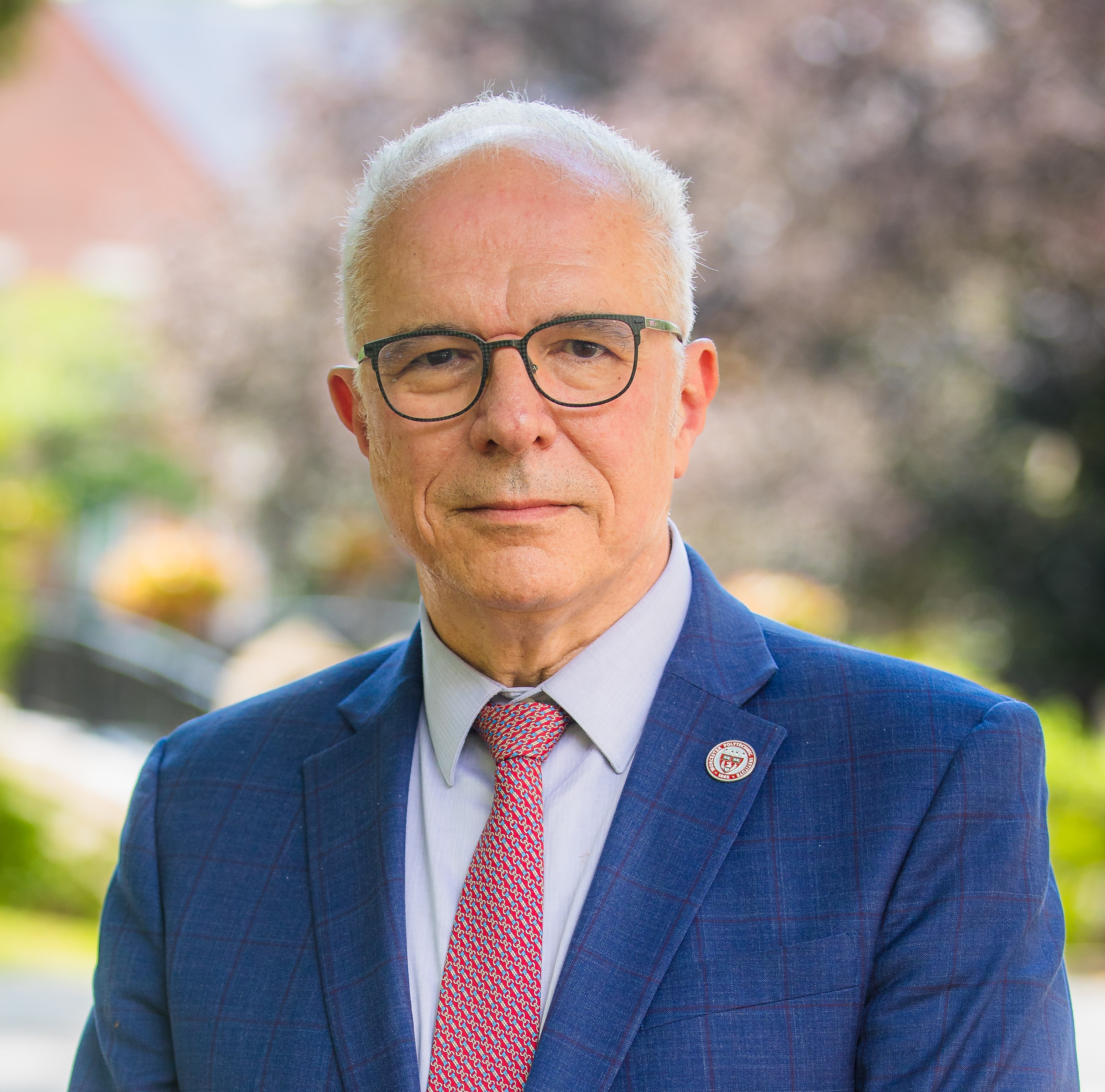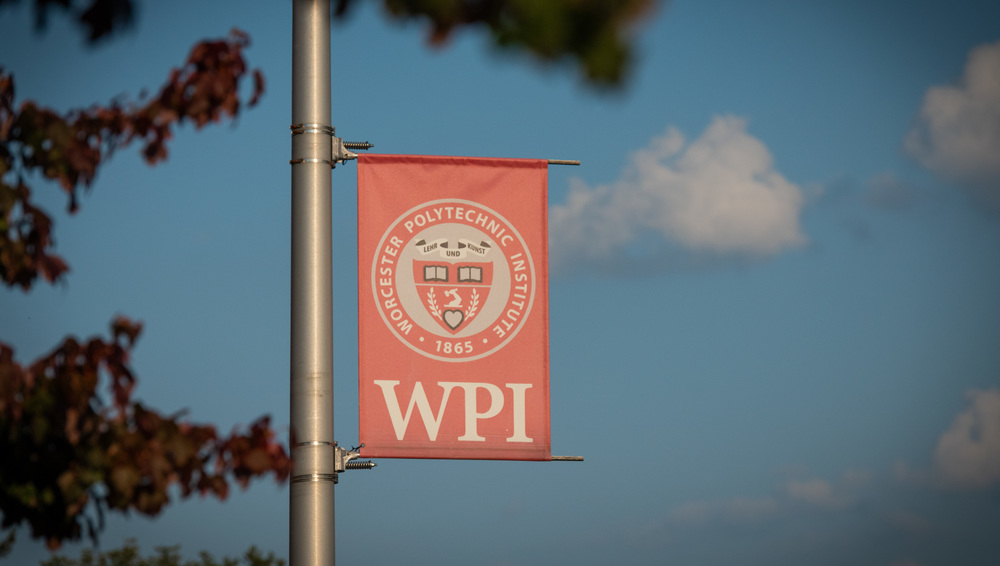Multidisciplinary research and education is a hallmark of the WPI approach, but forming new collaborations is challenging when you don’t know the minute details of others’ research. However, the university has found a way to help faculty members make new connections over common research interests—and faculty members have wasted no time in responding with innovative new ideas.
To encourage multidisciplinary collaborative research and to further expand the external funding to the university’s research, WPI announced the Transformative Research and Innovation, Accelerating Discovery (TRIAD) seed grant program in the fall.
“The idea behind TRIAD is to provide seed grant funding for innovative new collaborations,” says Antje Harnisch, assistant vice provost for research. New teams of three or four members—members cannot have worked together previously—must represent at least two departments, she says.
More Multidisciplinary Research, Broader Reach
Bringing expert faculty members together helps the university form a more robust research output while enhancing the actual research results because of the new perspectives. Applicants must be full-time faculty members and must submit their proposals for consideration. To encourage the earliest stages of ideas, the proposals don’t have to be extremely detailed. The selection, says Harnisch, is semi-random and teams are expected to meet the administrative requirements, thereby reducing any granting bias.

“As part of WPI’s strategic plan, we successfully increased our external funding by 60 percent in just four years,” says Bogdan Vernescu, vice provost for research. “We want to continue to nurture and grow research funding and reenergize multidisciplinary research. Through the generosity of the Board of Trustees, alumni, and internal funding sources, we’ve been able to put together this program. We are seeding this collaborative research with the goal of stimulating new ideas, and new collaborations, developing new impactful research, involving more students in multidisciplinary research, and attracting more funding for research at WPI.”
Teams can choose either a $60,000 full TRIAD grant or a $15,000 mini TRIAD grant. The funding structure is divided so each faculty team brings one-third of the funding from their own development funds (for a three-person team, each brings $6,667 and a fourth member can join the team without cost), associated department heads devote one-third of the funding, and the last one-third comes from the Office of the Vice Provost for Research. The funding for the 17 awarded seed grants (over $1M total) comes from returned indirect costs, and the generous contribution of a WPI alumnus and of WPI’s Chair of the Board of Trustees, Jack Mollen. Each project can last up to a year with a possible six-month extension.
A Collaborative Approach, the Right Setting
WPI offers a particularly conducive environment for TRIAD projects. “We are small enough that faculty can approach each other and look for ways to collaborate,” says Harnisch. While it’s not unheard of for faculty to bump into each other in person and recognize an opportunity to collaborate, WPI has developed a special TRIAD web portal on e-Projects 2.0 where faculty post potential research ideas and projects to see where their own interests align with someone else’s.
“It’s been exciting to watch faculty develop these innovative ideas and reach across departments to work with colleagues in new ways,” says President Laurie Leshin. “WPI is known for actively fostering interdisciplinary collaboration among our students on their project teams, and these new grants invest in faculty who share that spirit of collaboration in order to tackle challenges on the forefront of discovery.”
Once faculty members find a colleague to collaborate with, they can apply for the money to get started. “Research today is interdisciplinary,” Harnisch says. “People need to get out of their niches and work with each other to solve today’s problems, to get funded and have an impact.” At least 50 percent of the funding monies must be put toward student or postdoctoral fees, and indirect costs such as graduate student tuition and facilities or administrative costs are waived for TRIAD, so the money goes further, she says.
In the end, the deliverables the teams are expected to produce include a grant proposal for additional funding to expand their research and/or publication(s), depending on what is customary in the fields of research represented in the respective TRIAD.
Other schools have begun programs similar to the TRIAD approach, says Vernescu. “Universities want to stimulate more multidisciplinary research,” he says. “And at WPI, faculty have proposed some very cool topics.”
2020 TRIAD Awarded Projects
MXenes: New 2D Materials for Applications in Catalysis, Sensing, and Electronics
Principal Investigator: Lyubov Titova
Collaborators: Douglas Petkie, Andrew Teixeira, Aaron Deskins
Combating Online Health Misinformation: An Integration of Behavioral and Computational Approaches
Principal Investigator: Nima Kordzadeh
Collaborators: Kyumin Lee, Brenton Faber
Detection of Bioelectrical Changes as a Function of Neoplastic Progression
Principal Investigator: Ahmet Sabuncu
Collaborators: Izabela Stroe, Cagdas Onal, Maqsood Ali Mughal
Does Mechanical Stress Facilitate Muscle-neuron Integration?
Principal Investigator: Suzanne Scarlata
Collaborators: Kristen Billiar, Sarah Olson, George Pins
Chemical Processing and Machine Learning
Principal Investigator: Randy Paffenroth
Collaborators: Anthony Dixon, Michael Timko
How Do Plants Sense Pathogens? Molecular Receptors and Cellular Signaling
Principal Investigator: Luis Vidali
Collaborators: Dirk Albrecht, Samuel Cabot Walcott
Multi-scale Mechanical Characterization and Modeling of the Brain for Injury Prevention
Principal Investigators: Songbai Ji
Collaborators: Yuxiang Liu, Yihao Zheng
Photoacoustic Imaging of Neurovascular Bundles for Robot-Assisted Laparoscopic Pelvic Surgery Principal Investigator: Haichong Zhang
Collaborators: Loris Fichera, Gregory Fischer, Benjamin Nephew
ICME Approach to Design Novel Safe Lithium Electrode
Principal Investigator: James Urban
Collaborators: Albert Simeoni, Milosh Puchovsky, Winston Soboyejo
Creating a Digital Platform for Evaluation, Validation, and Visualization of Oxygenation Parameters of Human Body for Understanding Fatigue in Lymphangioleiomyomatosis Patients
Principal Investigator: Ulkuhan Guler
Collaborators: Pratap M Rao, Bengisu Tulu
Solid Electrolyte with High Ionic Conductivity and Stability through High Throughput Experiments, Phase Modeling and Artificial Intelligence
Principal Investigator: Yan Wang
Collaborators: Yu Zhong, Xiangnan Kong
Environmental Stressors and Decision-making Performance in the Context of Climate Change
Principal Investigator: Shichao Liu
Collaborators: Soussan Djamasbi, Gbetonmasse Blaise Somasse, Sarah Strauss
A Journey from High Dimensional PDE to Reinforcement Learning and Its Applications
Principal Investigator: Qingshuo Song
Collaborators: Yanhua Li, Seyed Zekavat
SUPER BUGS, Genomics-driven Molecular and Epidemiological Modeling of Multidrug Resistance Principal Investigator: Reeta Rao
Collaborators: Eric Young, Jian Zou
Closed-Loop BCI Using Adaptive Kinetic Architectural Design to Regulate Human Emotional States Principal Investigator: Ali Yousefi
Collaborators: Mohamad Farzinmoghadam, Erin Solovey
Complex Simulations for Local Environmental Policy: Digitization, Analysis, and Activism
Principal Investigator: Shamsnaz Virani Bhada
Collaborators: Constance Clark, Jennifer deWinter, Paul Mathisen
Zero- or Negative-Emissions Aerospace Fuel
Principal Investigator: Jagannath Jayachandran
Collaborators: Adam Powell, Ronald Grimm







